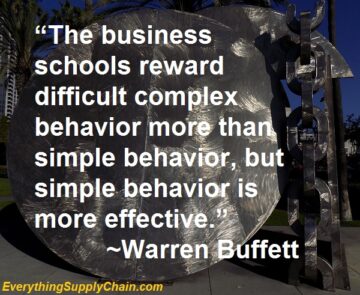
If you clicked into this page then you are searching on how to stop procrastination. You are not alone. As I am writing this thinking of ways for myself to stop whatever procrastination I do. Nobody is perfect. We can all improve.
Why We Procrastinate
We procrastinate for a variety of reasons, and it’s often a complex mix of emotional, cognitive, and situational factors. Here are some of the most common:
Emotional Reasons:
- Fear of failure: We might put off tasks we’re afraid of doing poorly on, leading to anxiety and avoidance.
- Self-doubt: We might lack confidence in our abilities, making it difficult to get started or stay motivated.
- Overwhelm: Feeling overwhelmed by the size or complexity of a task can be paralyzing and lead to procrastination.
- Perfectionism: The desire for everything to be “perfect” can lead to procrastination from fear of not meeting our own standards.
- Boredom or apathy: We might not find a task interesting or rewarding, making it harder to focus and engage with it.
Cognitive Reasons:
- Impulsivity: We might struggle with delayed gratification and prioritize immediate rewards over future benefits, leading to procrastination.
- Poor time management: Not having a clear plan or structure for tackling a task can make it feel daunting and lead to procrastination.
- Difficulty with prioritization: We might struggle to distinguish between urgent and important tasks, leading to procrastination on less urgent but important ones.
- Distractibility: Difficulty focusing and attentional lapses can make it hard to stay on track with tasks and lead to procrastination.
Situational Reasons:
- Lack of resources: Not having the necessary tools, information, or support can make it difficult to start or complete a task.
- Unclear expectations: Unclear instructions or deadlines can lead to confusion and procrastination.
- Negative environment: A noisy, chaotic, or uncomfortable environment can make it difficult to concentrate and lead to procrastination.
Why You Procrastinate even when it feels bad
How to Stop Procrastination
Conquering procrastination is definitely achievable, and there are multiple approaches you can take! Here are some actionable tips to consider:
Understanding your procrastination:
- Identify your triggers: What situations, emotions, or tasks usually lead you to procrastinate? Recognizing these cues is crucial for tackling them proactively.
- Explore the underlying reasons: Are you afraid of failure, overwhelmed by the task, or simply lacking motivation? Understanding the “why” behind your procrastination helps choose the right strategies.
Planning and structuring your work:
- Break down large tasks: Divide monumental projects into smaller, manageable chunks. This makes them seem less daunting and fosters a sense of progress.
- Set realistic goals: Aim for achievable milestones instead of overwhelming yourself with unrealistic expectations. Celebrate completing each step to stay motivated.
- Prioritize effectively: Use techniques like the Eisenhower Matrix to distinguish between urgent and important tasks, ensuring you focus on what truly matters.
- Schedule your time: Block out dedicated slots for specific tasks in your calendar. Treat these appointments as seriously as any other commitment.
Optimizing your work environment:
- Minimize distractions: Silence your phone, close unnecessary browser tabs, and find a quiet, clutter-free workspace to reduce external distractions.
- Utilize productivity tools: Consider apps like timers, focus trackers, or to-do lists to stay on track and manage your time effectively.
- Create a positive atmosphere: Surround yourself with things that motivate and inspire you. Play upbeat music, light a scented candle, or decorate your workspace with elements that bring you joy.
Building motivation and focus:
- Start small and build momentum: Begin with simple, achievable tasks to build confidence and momentum. This initial success can snowball into tackling bigger challenges.
- Reward yourself: Celebrate your progress! Rewarding yourself for completing tasks, regardless of size, reinforces positive behavior and keeps you motivated.
- Visualize success: Imagine yourself completing the task and envisioning the positive outcomes. This can boost your confidence and motivation.
- Practice mindfulness: Techniques like meditation and deep breathing can help manage stress and anxiety, two common culprits of procrastination.
- Find an accountability partner: Share your goals and progress with a supportive friend, family member, or online community. The social pressure can be great motivation.
Remember, tackling procrastination is a journey, not a destination. Be kind to yourself, experiment with different strategies, and celebrate your progress along the way. You’ve got this!
Motivation and Procrastination Resources
#wpdevar_comment_1 span,#wpdevar_comment_1 iframe{width:100% !important;} #wpdevar_comment_1 iframe{max-height: 100% !important;}
- SEO Powered Content & PR Distribution. Get Amplified Today.
- PlatoData.Network Vertical Generative Ai. Empower Yourself. Access Here.
- PlatoAiStream. Web3 Intelligence. Knowledge Amplified. Access Here.
- PlatoESG. Carbon, CleanTech, Energy, Environment, Solar, Waste Management. Access Here.
- PlatoHealth. Biotech and Clinical Trials Intelligence. Access Here.
- Source: https://www.supplychaintoday.com/how-to-stop-procrastination-and-why-we-do-it/
- :is
- :not
- a
- abilities
- accountability
- achievable
- actionable
- afraid
- aim
- All
- alone
- along
- am
- an
- and
- Andrew
- Anxiety
- any
- apathy
- appointments
- approaches
- apps
- ARE
- AS
- Atmosphere
- Bad
- BE
- begin
- behavior
- behind
- benefits
- between
- bigger
- Block
- boost
- breathing
- bring
- browser
- build
- but
- by
- Calendar
- CAN
- celebrate
- challenges
- Choose
- clear
- Close
- cognitive
- commitment
- Common
- community
- complete
- completing
- complex
- complexity
- concentrate
- confidence
- confusion
- Consider
- content
- crucial
- dedicated
- deep
- definitely
- Delayed
- desire
- destination
- different
- difficult
- Difficulty
- distinguish
- divide
- do
- doing
- down
- dr
- each
- effectively
- elements
- embedded
- emotional
- emotions
- engage
- ensuring
- Environment
- Ether (ETH)
- Even
- everything
- expectations
- experiment
- external
- factors
- Failure
- family
- fear
- feel
- feels
- Find
- Focus
- focusing
- For
- fosters
- friend
- from
- future
- get
- Goals
- got
- great
- Hard
- harder
- having
- help
- helps
- here
- How
- How To
- HTTPS
- i
- imagine
- immediate
- important
- improve
- in
- Increase
- information
- initial
- inspire
- instead
- instructions
- interesting
- into
- IT
- journey
- joy
- jpg
- Kind
- Lack
- lacking
- large
- lead
- leading
- less
- light
- like
- Lists
- make
- MAKES
- Making
- manage
- manageable
- management
- Matrix
- Matters
- Meditation
- meeting
- member
- might
- Milestones
- Mindfulness
- mix
- Momentum
- monumental
- most
- motivate
- motivated
- Motivation
- multiple
- Music
- myself
- necessary
- of
- off
- often
- on
- ones
- online
- or
- Other
- our
- out
- outcomes
- over
- overwhelmed
- overwhelming
- own
- page
- partner
- perfect
- phone
- plan
- plato
- Plato Data Intelligence
- PlatoData
- Play
- positive
- pressure
- prioritization
- Prioritize
- productivity
- Productivity Tools
- Progress
- projects
- put
- quiet
- realistic
- reasons
- recognizing
- reduce
- Regardless
- reinforces
- Resources
- rewarding
- Rewards
- right
- scented
- searching
- seem
- sense
- seriously
- Share
- Silence
- Simple
- simply
- situations
- Size
- slots
- small
- smaller
- Social
- some
- span
- specific
- standards
- start
- started
- stay
- Step
- Stop
- strategies
- stress
- structure
- structuring
- Struggle
- success
- support
- supportive
- tackling
- Task
- tasks
- techniques
- that
- The
- Them
- then
- There.
- These
- things
- Thinking
- this
- time
- tips
- to
- tools
- track
- Trackers
- treat
- truly
- two
- unclear
- underlying
- understanding
- unnecessary
- upbeat
- urgent
- use
- usually
- variety
- Way..
- ways
- we
- What
- whatever
- when
- why
- with
- Work
- writing
- you
- Your
- yourself
- youtube
- zephyrnet












